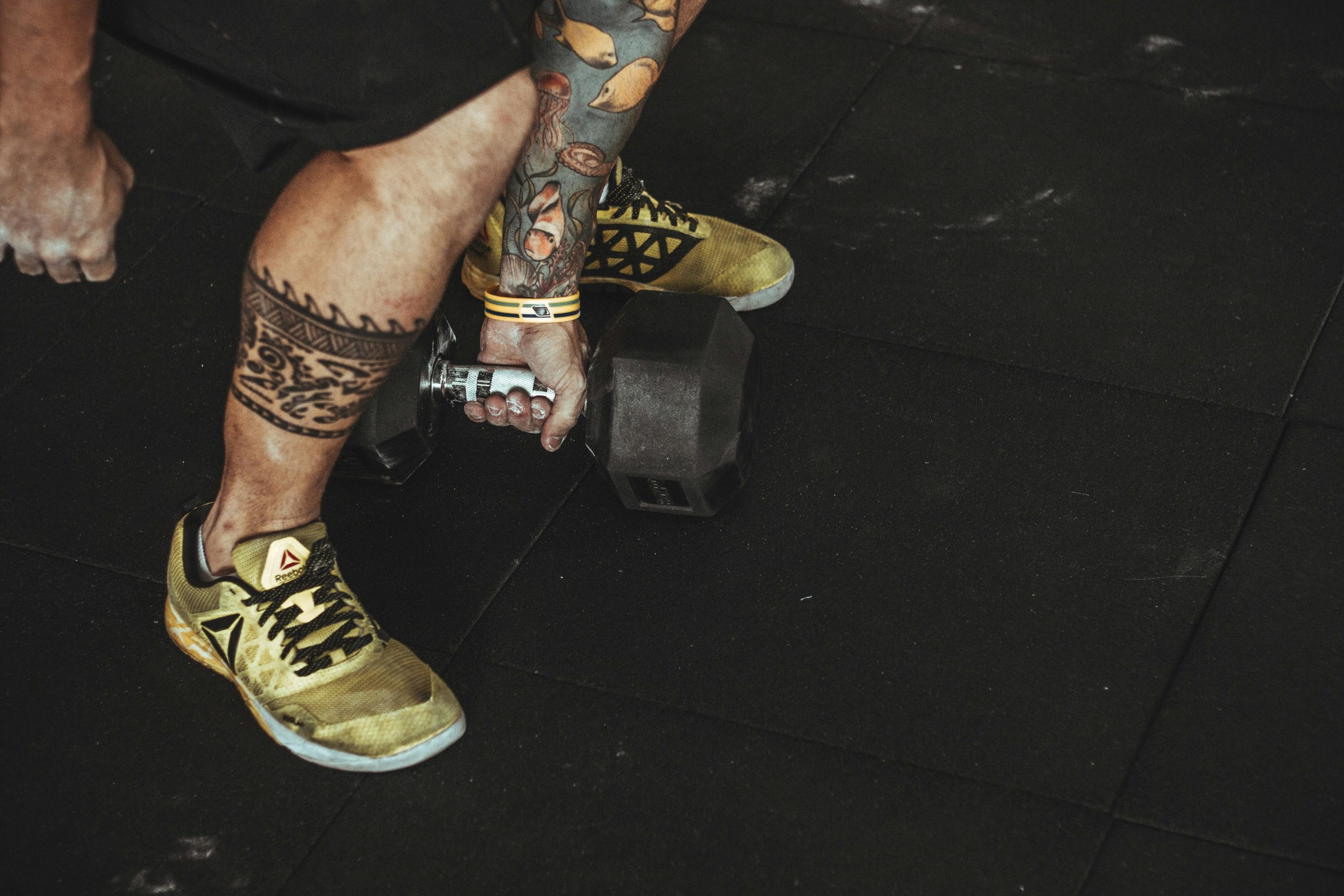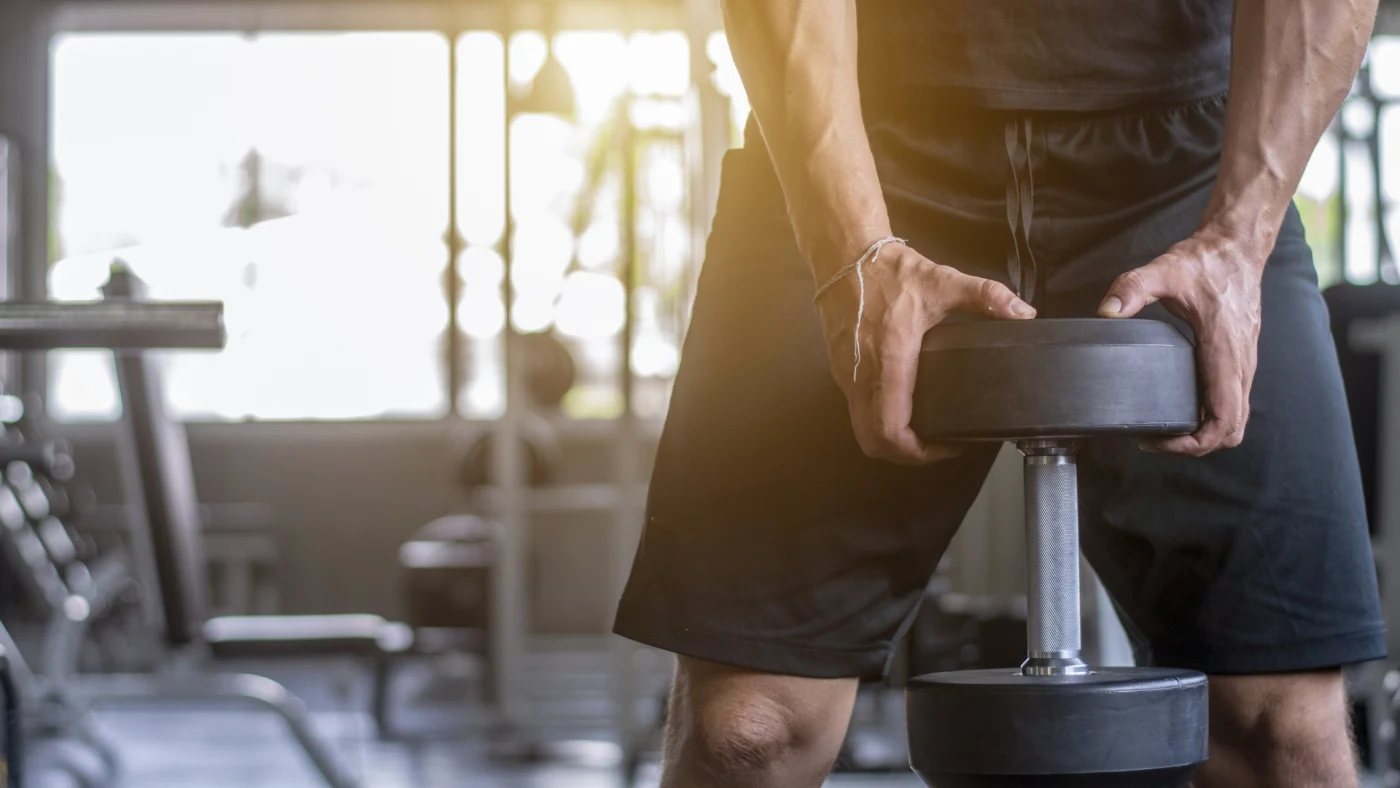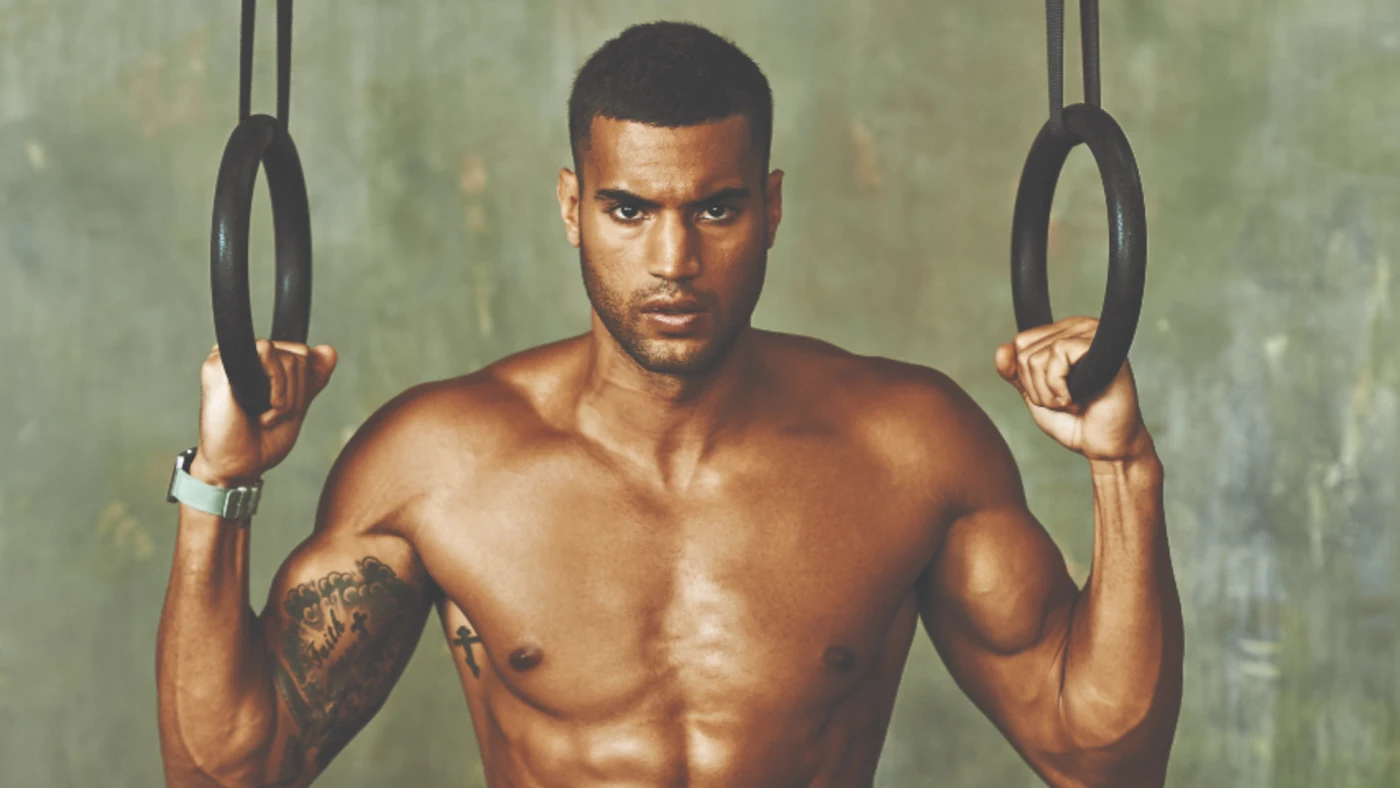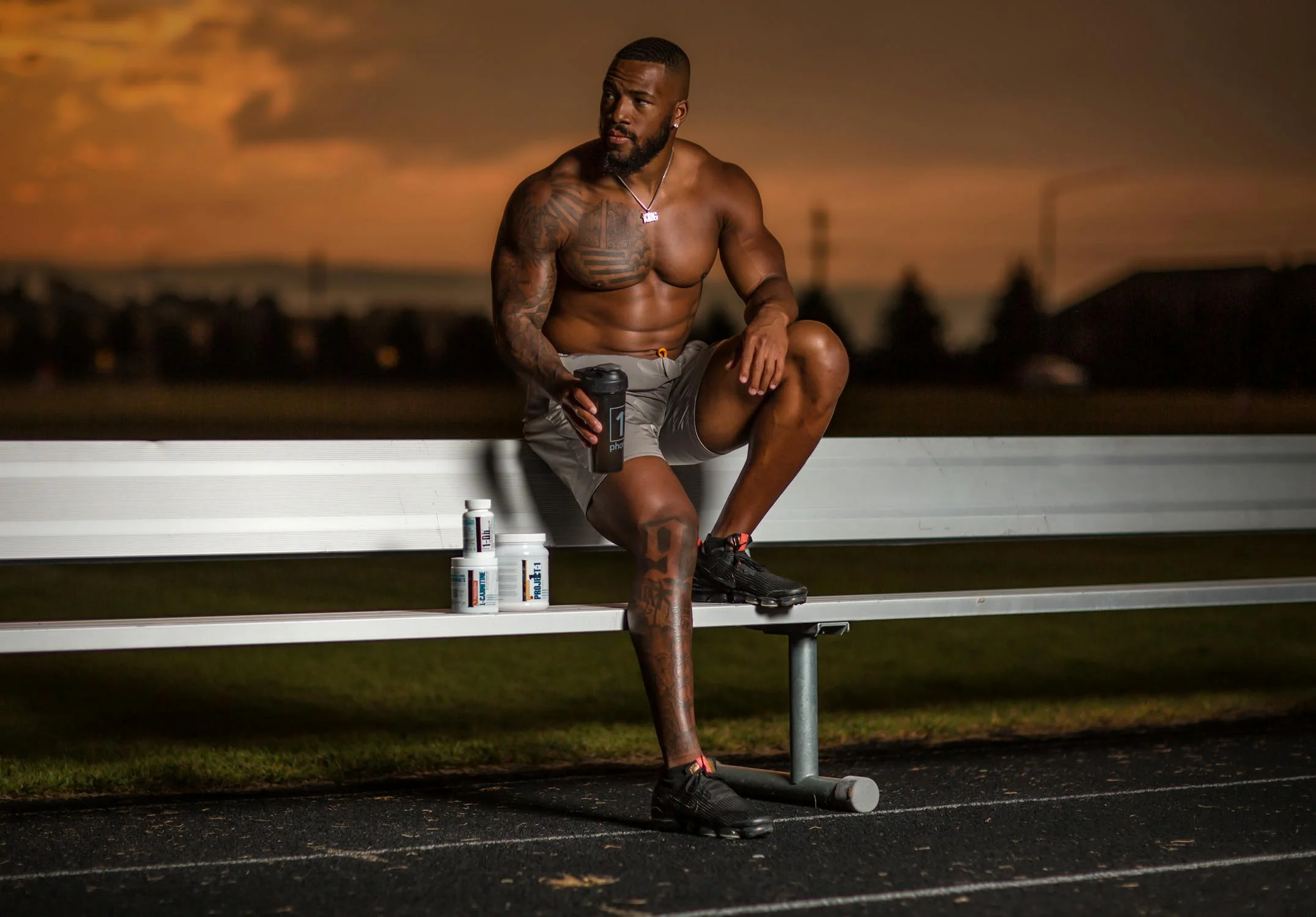Discover the Power of Dumbbell Training
Did you know that 94% of fitness enthusiasts consider dumbbells the most versatile strength training equipment for beginners? Dumbbell exercises are an excellent way to build muscle, improve fitness, and transform your body with minimal equipment.
Strength training with dumbbells is accessible to everyone. These compact weights allow you to target specific muscle groups, making it easy to create effective full-body workout plans.
If you’re new to fitness or resuming after a break, dumbbell workouts are an ideal choice. They provide scalable challenges that align with your current strength level and fitness goals while being simple yet highly effective.
Key Takeaways
- Suitable for all ages and fitness levels
- Beginner workouts should last 10-30 minutes
- Focus on proper form and controlled movements
- Start with 3 workouts per week
- Gradually increase intensity and frequency
Why Dumbbell Training is Essential for Beginners
Dumbbell exercises enhance home workouts by offering an adaptable and efficient way to build muscle. Their independent movement requires greater muscle engagement, improving coordination and balance.
1. Improved Muscle Stability and Balance
Dumbbells activate muscles that machines often overlook, enhancing coordination and fixing muscle imbalances.
- Engages smaller supporting muscle groups
- Improves neuromuscular communication
- Builds functional strength for everyday activities
2. Enhanced Range of Motion
Unlike machines, dumbbells allow natural movement, increasing joint flexibility and muscle mobility.
- Encourages multiplanar motion
- Reduces movement restrictions
- Enhances muscle engagement
3. Better Muscle Activation and Growth
Dumbbell workouts stimulate muscle growth using two primary mechanisms: mechanical stress (heavy weights) and metabolic fatigue (higher reps with lighter weights).
- Boosts muscle protein synthesis
- Increases muscle fiber recruitment
- Promotes efficient strength gains
Mastering Form and Selecting the Right Weight
Proper form is crucial for beginners. Focus on technique before increasing weight to reduce injury risks and optimize results. The CDC recommends strength training at least twice a week to build a solid foundation.
Weight Selection Guidelines:
- Choose a weight allowing 12-15 reps with good form
- Start light and progress gradually
- Maintain controlled, smooth movements
- Ensure a full range of motion in every exercise
Recommended Weights:
| Exercise Type | Suggested Weight Range | Reps Goal |
|---|---|---|
| Beginner Strength | 2-10 kg | 12-15 reps |
| Endurance Training | Light Weights | 10-14 reps |
| Muscle Growth | Moderate to Heavy | 4-6 reps |
Pro Tip: Prioritize form over heavy lifting. If an exercise causes pain, reduce the weight or modify the movement.
Upper Body Dumbbell Exercises
Building upper body strength requires targeted exercises. These workouts help develop muscle, improve stability, and boost overall strength.
1. Dumbbell Shoulder Press
Targets: Shoulders and arms
- Stand with feet shoulder-width apart
- Hold dumbbells at shoulder height
- Press weights overhead while engaging your core
- Lower weights back to shoulder level with control
2. Bicep and Hammer Curls
Targets: Biceps and forearms
- Perform 15 reps per set
- Maintain proper form to avoid strain
3. Chest Press Variations
Targets: Chest and triceps
- Can be performed seated or lying down
- Start with lighter weights (5-8 lbs for women, 8-15 lbs for men)
4. Triceps Extensions
Targets: Triceps
- Move slowly and focus on muscle activation
Perform these exercises 2-3 times a week with a rest day in between for recovery and muscle growth.
Lower Body Dumbbell Exercises
Dumbbell workouts strengthen and tone the lower body while improving mobility and stability.
Key Exercises:
- Dumbbell Squats – Strengthen legs and core
- Reverse Lunges – Improve balance and engage multiple muscle groups
- Single-Leg Deadlifts – Develop balance and posterior chain strength
- Goblet Squats – Enhance grip strength and lower body power
Recommended Routine:
| Exercise | Muscle Groups | Reps per Set |
|---|---|---|
| Deadlifts | Glutes, Hamstrings | 10 reps |
| Reverse Lunges | Glutes, Quads | 10 reps/side |
| Goblet Squats | Quads, Core | 10 reps |
| Single-Leg Deadlifts | Hamstrings, Glutes | 5 reps/side |
Start with lighter weights and progressively increase them for best results.
Full-Body Dumbbell Training Routines
A well-designed full-body dumbbell workout engages multiple muscle groups effectively. Consider these principles:
1. Basic Movement Patterns
- Push Movements: Chest press, shoulder press
- Pull Movements: Bent-over rows, renegade rows
- Squatting Patterns: Goblet squats, sumo squats
- Hinging Movements: Deadlifts, single-leg deadlifts
2. Progressive Overload
- Gradually increase weights
- Adjust reps and workout duration
- Reduce rest times to enhance endurance
3. Recovery and Rest
- Allow 48-72 hours between full-body workouts
- Sleep 7-9 hours per night
- Maintain a nutrient-rich diet with enough protein
- Incorporate active recovery techniques like stretching
Avoiding Common Dumbbell Training Mistakes
Many beginners make avoidable errors that can limit results and cause injuries. Some key mistakes include:
Frequent Errors and Solutions:
| Mistake | Consequence | Solution |
|---|---|---|
| Lifting Excessive Weight | Poor form, injury risk | Start light, progress slowly |
| Ignoring Core Engagement | Lower back strain | Focus on core stabilization |
| Rushing Repetitions | Reduced muscle activation | Maintain controlled pace |
Pro Tip: Always prioritize proper technique. Slow, controlled reps yield better results than rushing through exercises with improper form.
Conclusion
Dumbbell training is one of the most efficient ways to build strength and improve fitness from home. Whether you’re targeting specific muscle groups or performing full-body workouts, dumbbells offer unmatched versatility.
By mastering proper form, selecting the right weights, and maintaining a consistent training routine, you can safely and effectively enhance your strength. Dumbbell workouts empower individuals of all fitness levels to achieve their health and fitness goals with minimal equipment and maximum results.





